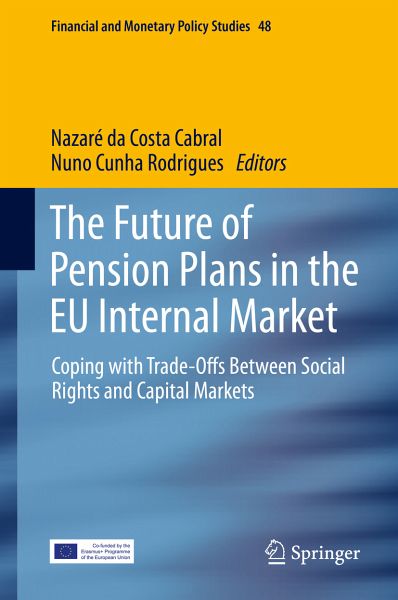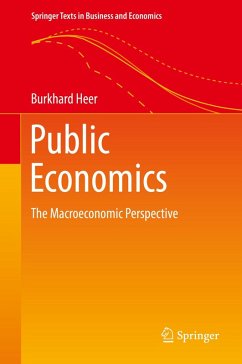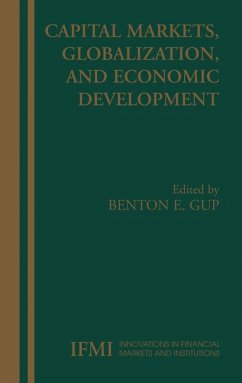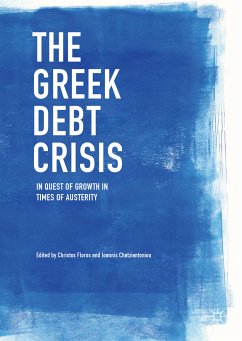
The Future of Pension Plans in the EU Internal Market (eBook, PDF)
Coping with Trade-Offs Between Social Rights and Capital Markets
Redaktion: Da Costa Cabral, Nazaré; Cunha Rodrigues, Nuno
Versandkostenfrei!
Sofort per Download lieferbar
72,95 €
inkl. MwSt.
Weitere Ausgaben:

PAYBACK Punkte
36 °P sammeln!
This edited volume takes a closer look at various European pension-plan models and the recent challenges, trends and predictions related to the design of such schemes. The contributors analyse new ideas, both from national governments and European institutions, and consider current debates on topics such as the Capital Markets Union (CMU) and the so-called 'European Pillar of Social Rights' - calling for a new approach to social policy at the European level in response to common challenges, such as ageing and the digital revolution.This interdisciplinary work embraces economic, financial and l...
This edited volume takes a closer look at various European pension-plan models and the recent challenges, trends and predictions related to the design of such schemes.
The contributors analyse new ideas, both from national governments and European institutions, and consider current debates on topics such as the Capital Markets Union (CMU) and the so-called 'European Pillar of Social Rights' - calling for a new approach to social policy at the European level in response to common challenges, such as ageing and the digital revolution.
This interdisciplinary work embraces economic, financial and legal perspectives, while focusing on previously selected coherence aspects in order to ensure that the analyses are comprehensive and globally consistent.
Dieser Download kann aus rechtlichen Gründen nur mit Rechnungsadresse in A, B, BG, CY, CZ, D, DK, EW, E, FIN, F, GR, HR, H, IRL, I, LT, L, LR, M, NL, PL, P, R, S, SLO, SK ausgeliefert werden.
Alle Preise in Euro und inkl. der gesetzl. MwSt. | Innerhalb Deutschlands liefern wir preisgebundene Bücher versandkostenfrei. Weitere Informationen: bitte hier klicken
Support
Bitte wähle dein Anliegen aus:
Rechnungen
Bestellstatus
Retourenschein
Storno












